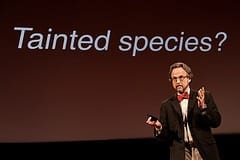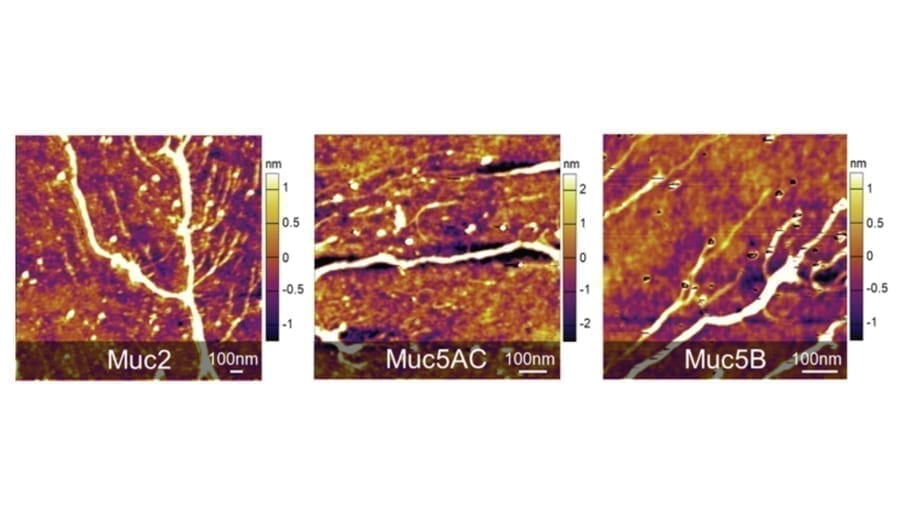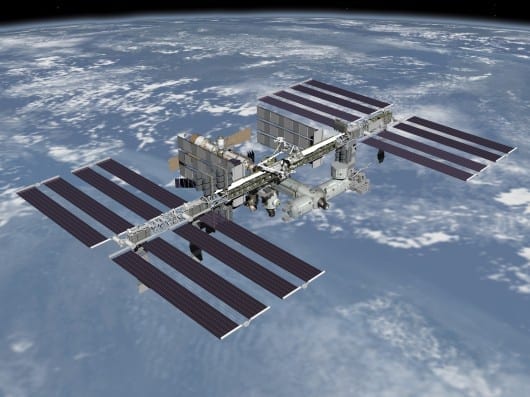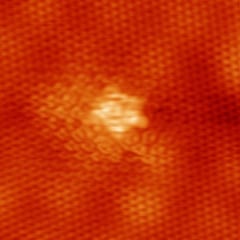
What effects will the rapidly growing field of synthetic biology have on the conservation of nature?
The ecological and ethical challenges stemming from this question will require a new and continuing dialogue between members of the synthetic biology and biodiversity conservation communities, according to authors of a new paper.
According to the paper, the field of synthetic biology—a discipline that utilizes chemically synthesized DNA to create organisms that address human needs—is developing rapidly, with billions of dollars being invested annually. Many extol the virtues of synthetic biology as providing potential solutions to human health problems, food security, and energy needs. Advocates also see in synthetic biology tools for combating climate change and water deficits. Critics warn that genetically modified organisms could pose a danger to native species and natural ecosystems. The paper’s authors assert that, in any scenario, a dialogue on how to use and restrict synthetic biology methods and products must be initiated for the benefit of the world’s societies and decision makers.
The authors of the essay—published in the online journal PLOS Biology—include: Kent Redford of the Wildlife Conservation Society and Archipelago Consulting; Bill Adams of the University of Cambridge; and Georgina M. Mace of University College London (UCL).
“At present, the synthetic biology and conservation communities are largely strangers to one another, even though they both share many of the same concerns and goals,” said Kent Redford, lead author of the article. “An open discussion between the two communities is needed to help identify areas of collaboration on a topic that will likely change the relationship of humans with the natural world.”
The authors of the paper, along with other scientists and conservationists, will discuss the potential implications that synthetic biology may have on the natural world and conservation at the Synthetic Biology and Conservation Conference, convening at Clare College in Cambridge, England, on April 9-11.
John Robinson, WCS Chief Conservation Officer, said: “Synthetic biology is an extremely important and burgeoning field, but its consequences to biodiversity and conservation are currently poorly understood. By bringing together the best thinkers in these two disciplines we hope to gain a better understanding on synthetic biology’s opportunities – and potential impacts – to conservation.”
The Latest Bing News on:
Synthetic biology saving wildlife
- Marriage of synthetic biology and 3D printing produces programmable living materialson May 1, 2024 at 6:42 am
Scientists are harnessing cells to make new types of materials that can grow, repair themselves and even respond to their environment. These solid "engineered living materials" are made by embedding ...
- Crafting Programmable Living Materials With Synthetic Biology & 3D Printingon May 1, 2024 at 4:59 am
New study uses 3D printing and genetically modified plant cells to create complex, self-repairing materials that could revolutionize biomanufacturing and construction. Scientists are harnessing cells ...
- Self-assembling synthetic cells act like living cells with extra abilitieson April 23, 2024 at 5:00 pm
Blurring the line between artificial and living materials, these cells can be reprogrammed to perform multiple functions, opening the door to new synthetic biology tech that goes beyond nature’s ...
- Synthetic Biology US 2024on March 21, 2024 at 5:00 pm
Don't miss Synthetic Biology US 2024! Join leading omics experts and researchers for a two-day event accelerating the development of synthetic biology tools to enable effective therapeutics ...
- Synthetic biology: applications come of ageon January 8, 2024 at 1:02 am
Early synthetic biology designs, namely the genetic toggle switch and repressilator, showed that regulatory components can be characterized and assembled to bring about complex, electronics ...
- MLA Quotation Punctuationon October 23, 2023 at 5:24 am
Example: In “Synthetic Biology–Putting Engineering into Biology,” Heinemann and Panke theorize about the future of synthetic biology, declaring, “Now, synthetic biology is adopting a very ambitious ...
- Chemistry Department Facultyon October 17, 2023 at 10:59 am
Understanding complex biological systems and developing new tools to engineer them have been a central focus for both chemistry and biology. One of the main goals of our research program is to develop ...
- Synthetic Biologyon August 19, 2023 at 9:25 am
In the drug discovery pipeline, there are several areas where the speed and accuracy of new synthetic biology tools are making a measurable difference in the ability to accelerate drug development ...
- Synthetic Biologyon August 16, 2023 at 4:39 am
There are many reasons you may want to deliver something into a cell, be it genetic material or a therapeutic drug, and electroporation is a vital tool to achieve this. In this article, we will ...
- Biotechnology, Systems & Synthetic Biologyon February 26, 2023 at 3:16 am
and to facilitate environmental stewardship and conservation. Combining methods, principles, and knowledge from disciplines including biology, engineering, mathematics, and computational science, ...
The Latest Google Headlines on:
Synthetic biology saving wildlife
[google_news title=”” keyword=”synthetic biology saving wildlife” num_posts=”10″ blurb_length=”0″ show_thumb=”left”] [/vc_column_text]The Latest Bing News on:
Synthetic biology
- Programmable Living Materials Created Using Synthetic Biology and 3D Printingon May 2, 2024 at 2:07 am
Scientists are harnessing cells to make new materials that can grow, repair themselves and even respond to their environment.
- Twist Bioscience: Strong Demand and Strategic Positioning Fuel Buy Ratingon May 1, 2024 at 11:38 pm
Analyst Catherine Ramsey Schulte from Robert W. Baird maintained a Buy rating on Twist Bioscience (TWST – Research Report) and keeping ...
- Marriage of synthetic biology and 3D printing produces programmable living materialson May 1, 2024 at 6:42 am
Scientists are harnessing cells to make new types of materials that can grow, repair themselves and even respond to their environment. These solid "engineered living materials" are made by embedding ...
- Engineered living materials: Scientists 3D print with bio-ink made from tobacco cellson May 1, 2024 at 5:03 am
Also known as EPLMs, “engineered plant living materials” are a new frontier that marries synthetic biology and 3D printing, an invention that’s inspired many improvements to the mechanism itself as ...
- Crafting Programmable Living Materials With Synthetic Biology & 3D Printingon May 1, 2024 at 4:59 am
New study uses 3D printing and genetically modified plant cells to create complex, self-repairing materials that could revolutionize biomanufacturing and construction. Scientists are harnessing cells ...
- Vaccine Developers Leverage mRNA and Other Powerful Technologieson April 30, 2024 at 5:00 pm
Grint is entrepreneur in residence at the University of California, San Diego, and holds board-level positions in several companies, including Codagenix, which combines live, attenuated virus design ...
- Ansa Biotechnologies to Showcase Early Access Customer Success at Upcoming Global Synthetic Biology Conferenceon April 30, 2024 at 5:03 am
Ansa Biotechnologies, Inc., the trusted partner for complex DNA synthesis, today announced its speaker lineup for presentations at the upcoming Global Synthetic Biology (SynBioBeta) Conference in San ...
- Self-assembling synthetic cells act like living cells with extra abilitieson April 23, 2024 at 5:00 pm
Blurring the line between artificial and living materials, these cells can be reprogrammed to perform multiple functions, opening the door to new synthetic biology tech that goes beyond nature’s ...
- Inside the new Seattle Hub for Synthetic Biology, which uses DNA to ‘record biology over time’on April 1, 2024 at 6:20 pm
Scientist Sundarshan Pinglay shows off a liquid handling instrument that automatically dispenses reagents, at the Seattle Hub for Synthetic Biology. (GeekWire Photo / Charlotte Schubert ...
- Synthetic Biology Comes of Ageon March 22, 2024 at 6:25 pm
Murphy Professor of Chemical and Biological Engineering and Charles Deering McCormick Professor of Teaching Excellence at the McCormick School of Engineering, this burgeoning field within synthetic ...
The Latest Google Headlines on:
Synthetic biology
[google_news title=”” keyword=”synthetic biology” num_posts=”10″ blurb_length=”0″ show_thumb=”left”]










